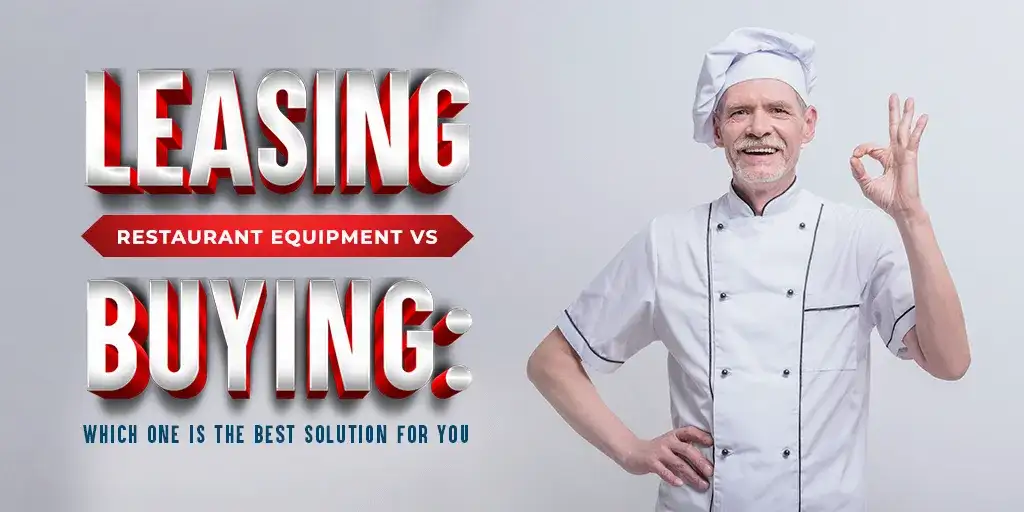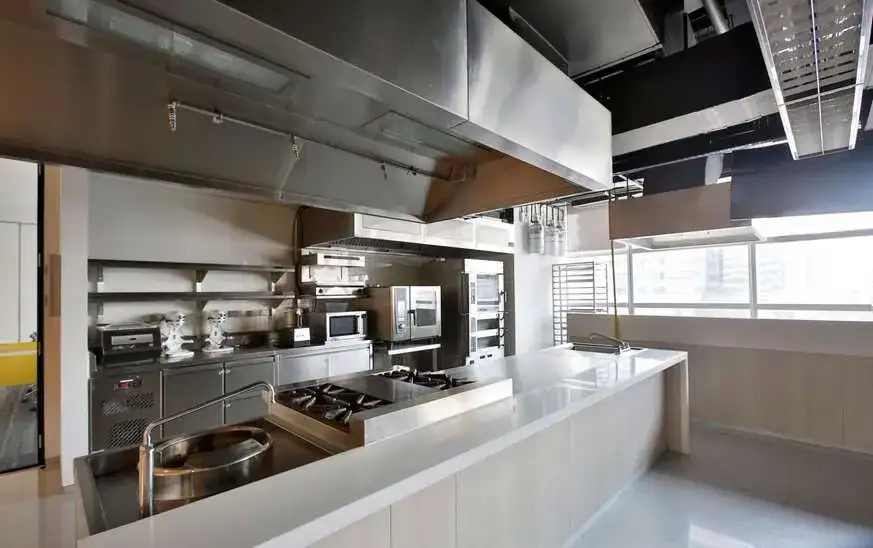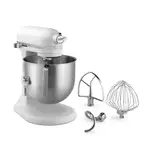
Restaurant Equipment Leasing vs. Buying: Which Is the Better Option?
- What Is a Lease?
- Leasing Restaurant Equipment: A New Way of Buying
- What Are the Benefits of Renting & Leasing Restaurant Equipment?
- Points to Consider Before Restaurant Equipment Leasing Or Renting
- Buying Restaurant Kitchen Equipment
- Important Factors to Consider When Buying Restaurant Equipment
- Restaurant Equipment Buying vs. Leasing - What Should You Choose?
Equipping a commercial kitchen can be a drawn-out process that involves a lot of research and consideration. It also involves budgeting your finances appropriately to allow you to procure the best and most economical pieces of equipment for your business. So how does restaurant equipment leasing vs. buying fare up? What are the advantages of leasing restaurant equipment vs. buying them? While there are several conflicting opinions about buying, leasing, and renting equipment, it’s important to understand that each option has its utility in several conditions.
Regularly evolving types of equipment need to be replaced so you can avoid using outdated machinery. Leasing restaurant equipment is a better option as opposed to buying in such cases. On the other hand, long-lasting equipment can be bought or even rented depending on your restaurant’s budget. However, some lease agreements also allow you to purchase the equipment at the end of the lease period, an added benefit. In case you’re wondering ‘should I buy or lease restaurant equipment?’, you’re right where you want to be. Read on to know more about restaurant equipment leasing for startups and the considerations to make when leasing restaurant equipment.

What Is a Lease?
Leases involve a lessor - the person or company letting out a piece of equipment or property to a lessee who agrees to pay for the equipment or property over a particular period. All the products & services included in the lease, the duration, and the terms & conditions are included in the agreement that is signed by both the lessor and lessee before the lease period begins. While a lot of people might confuse renting vs. leasing restaurant equipment, it’s important to understand that renting only allows you to use the equipment in return for a monthly payment, whereas leases also allow you to make a balloon payment at the end of the lease period and buy the equipment for good.
Leasing Restaurant Equipment: A New Way of Buying
Most restaurant owners wonder ‘Should I rent or buy restaurant equipment?’ With the increased availability of leases, business owners can now avail a better option. Leasing restaurant equipment not only allows you to use, upgrade, and service the equipment under the agreement, but lessors also allow business owners to buy the equipment when the term ends. Leasing entails two main advantages as opposed to other procurement options:
- Nominal expense: The upfront costs for leases are not as high as the price tags for new equipment, and allow you to hold onto more capital. Restaurant equipment leasing that requires upgrades every few years allows establishments to revamp their existing arsenal at affordable prices.
- Lease to own equipment: Lease agreements often provide the option to buy the equipment in return for a balloon payment. This makes it very viable for restaurant owners when they’re considering leasing restaurant equipment vs. buying it upfront. Such options enable businesses to get a feel of the equipment before they commit to it. In case business owners are eager for a change, they can opt out of the buying option and instead choose an upgrade.
What Are the Benefits of Renting & Leasing Restaurant Equipment?
Leasing and renting restaurant equipment have several benefits that allow businesses to save up on precious starting capital to manage the running costs. Here are some of the core benefits of leasing and renting restaurant equipment:
- Cheaper initial costs: Both the rent and lease options are bound to save business owners a large sum of money in their initial investment costs. Since the initial period of your business requires a continuous cash flow to offset several expenses, the money saved from restaurant equipment leasing can come in handy.
- Maintenance & upgrades: Lease contracts often provide free servicing, repairs, and maintenance for products that are given out on lease. This removes maintenance costs from your monthly running costs. Lease agreements also allow you to upgrade to a newer machine once your existing contract ends.
- Easy access to new machines: Leases often provide new and unused machines to business owners. This is an advantage as opposed to buying used equipment, as most refurbished machines lack warranties and service guarantees. On the other hand, leases offer both new appliances and legitimate service options that are included in the agreement.
- Easy Financing: Banks and other financial institutions can take a long time to approve your loans and requests when you intend on purchasing new equipment. However, lease companies are far more responsive and quick in offering services as compared to financial institutions. This allows you to line up a range of equipment quickly to get your business started.
Points to Consider Before Restaurant Equipment Leasing Or Renting
In case you’ve been thinking about how to lease equipment for a startup restaurant, here are the points you must consider:
- Monthly Costs: Leasing works great in case you want to spread out your expenses over a long period. However, the end total you might pay will look different as compared to a lump sum amount paid upfront to buy the equipment for good. Since this is not viable for all businesses, budgeting monthly expenses can help you cover lease costs.
- Balloon Payment: Balloon payments are made at the end of the lease period in case you want to buy the equipment. Since balloon payments are larger than monthly payments, you might have to set aside extra money to procure the equipment you leased out.
- Rates of Interest: Lease companies have higher interest rates when compared to other financial institutions. Restaurant equipment leasing for startups requires thorough research and financial planning as the rates of interest can make a big difference for a few business owners.
- Contractual Terms: It’s important to read every part of the agreement and the contract offered to you by the company. Understand the consequences of breaking a lease early, especially if such options come with a charge. Consider all terms carefully when leasing restaurant equipment.
Buying Restaurant Kitchen Equipment
Purchasing equipment upfront is another option for business owners. It allows businesses to own their equipment and cut down on their monthly expenses. Buying commercial kitchen equipment encompasses both new and used equipment. All equipment you purchase must be reliable, durable, and must have a long operational lifespan.
- The Advantages of Buying Restaurant Equipment: Buying equipment outright has a number of benefits such as:
- Long-term Savings: Buying equipment upfront allows you to save a lot of money in the long run. Lower monthly expenses, coupled with no interest rates to pay, and the lack of additional charges can help you hold on to more money month on month and improve your margins.
- Flexibility: Owning equipment allows business owners to be more flexible with the usage of their equipment. Machinery is not tied down with protocols and regulations mentioned in the contract, allowing staff and owners to experiment.
- Greater Control: Leasing restaurant equipment can make some business owners feel restricted due to the limited options and brands offered by the company. Such is not the case when purchasing equipment for good.
- Tax Benefits: Since the value of all equipment depreciates over time, the loss in value can be added to your deductions section to claim benefits.
Important Factors to Consider When Buying Restaurant Equipment
In case you’re considering equipment purchase as opposed to leasing or renting restaurant equipment, you must bear these points in mind:
- Initial Costs: The cost of buying new equipment impacts your initial investment capital. Since most pieces of equipment are expensive, you might have to look for financing options or have to settle for equipment of lower quality to fit the budget.
- Maintenance & Repair: Once you own equipment, the servicing and maintenance responsibilities fall on your shoulders. In case the machinery is past the warranty period, you might even have to pay for the repairs yourself.
- Tougher to Upgrade: Owning equipment can make it difficult to upgrade to a newer model. The process often involves either selling or exchanging the existing equipment and paying the extra costs for the newer model.
Restaurant Equipment Buying vs. Leasing - What Should You Choose?
While each of these options is equally valid for business owners looking to set up their commercial kitchen, some options might not be right for you. While buying equipment can help you save money in the long run, it also has an impact on your starting capital. On the other hand, leasing comes with monthly expenses, however, it also allows you to purchase the device or upgrade to a higher model at the end of the lease period. Get in touch with a financial advisor to get a better understanding of what suits your establishment the best.
To Conclude
Foodservice equipment forms the core of each restaurant. Acquiring quality equipment remains the focus of most business owners at the start of their operations. With improvements in payment options and in the variety of equipment itself, a variety of alternatives now exist for business owners. Whether you buy, lease, or rent restaurant equipment, ensure the quality of the machines you procure is up to the mark.






